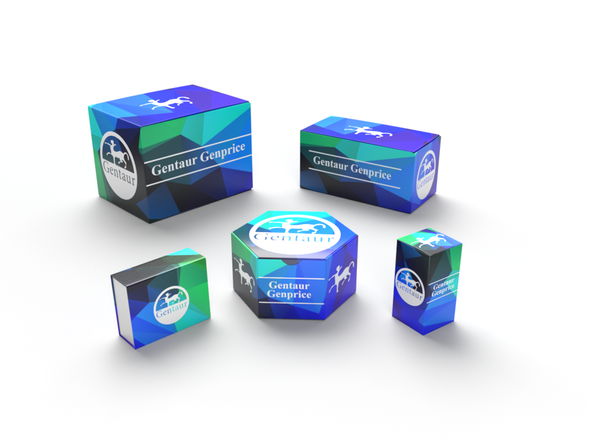Description
IRF4 Antibody | 6307 | Gentaur UK, US & Europe Distribution
Host: Rabbit
Reactivity: Human, Mouse, Rat
Homology: N/A
Immunogen: IRF4 antibody was raised against a 16 amino acid synthetic peptide near the carboxy terminus of human IRF4.
The immunogen is located within the last 50 amino acids of IRF4.
Research Area: Innate Immunity
Tested Application: E, WB, ICC, IF
Application: IRF4 antibody can be used for detection of IRF4 by Western blot at 0.5 μg/mL. Antibody can also be used for immunocytochemistry starting at 10 μg/mL. For immunofluorescence start at 20 μg/mL.
Antibody validated: Western Blot in human samples; Immunocytochemistry in human samples and Immunofluorescence in human samples. All other applications and species not yet tested.
Specificiy: IRF4 antibody is predicted to not cross-react with other IRF protein family members. IRF4 often migrates at a higher than predicted molecular weight in SDS-PAGE.
Positive Control 1: Cat. No. 1225 - Ramos Cell Lysate
Positive Control 2: Cat. No. 17-005 - Jurkat Cell Slide
Positive Control 3: N/A
Positive Control 4: N/A
Positive Control 5: N/A
Positive Control 6: N/A
Molecular Weight: N/A
Validation: N/A
Isoform: N/A
Purification: IRF4 Antibody is affinity chromatography purified via peptide column.
Clonality: Polyclonal
Clone: N/A
Isotype: IgG
Conjugate: Unconjugated
Physical State: Liquid
Buffer: IRF4 Antibody is supplied in PBS containing 0.02% sodium azide.
Concentration: 1 mg/mL
Storage Condition: IRF4 antibody can be stored at 4 ˚C, stable for one year. As with all antibodies care should be taken to avoid repeated freeze thaw cycles. Antibodies should not be exposed to prolonged high temperatures.
Alternate Name: IRF4 Antibody: MUM1, LSIRF, NF-EM5, MUM1, Interferon regulatory factor 4, Lymphocyte-specific interferon regulatory factor, IRF-4
User Note: Optimal dilutions for each application to be determined by the researcher.
BACKGROUND: IRF4 Antibody: Interferons (IFNs) are involved in a multitude of immune interactions during viral infections and play a major role in both the induction and regulation of innate and adaptive antiviral mechanisms. During infection, host-virus interactions signal downstream molecules such as transcription factors such as IFN regulatory factor-3 (IRF3) which can act to stimulate transcription of IFN-alpha/beta genes. Another member, IRF7 has been shown to play a role in the transcriptional activation of virus-inducible cellular genes, including interferon beta chain genes. IRF4 expression is tightly regulated in resting primary T cells and plays an essential role in the homeostasis and function of mature lymphocytes. IRF4 is induced by Toll-like receptor (TLR) activation and acts as a negative regulator of TLR signaling.






